Shattering the Building Envelope Ceiling - PODCAST TRANSCRIPT
July 1, 2025 at 10:00 a.m.Editor's note: The following is the transcript of a live interview with Kristen Case of Hi-Peak Staffing and Rae July-Fistonich from Chinook Building Envelope Services. You can read the interview below or listen to the podcast.
Intro: Welcome to Roofing Road Trips. The podcast that takes you on a thrilling journey across the world of roofing. From fascinating interviews with roofing experts to on the road adventures, we'll uncover the stories, innovations and challenges that shape the rooftops over our heads. So fasten your seat belts and join us as we embark on this exciting roofing road trip.
Heidi Ellsworth: Hello and welcome to another Roofing Road Trips from Roofers Coffee Shop. My name is Heidi Ellsworth and we are here today with some of my favorite people talking about my favorite topic. Inclusivity, women in roofing, all the great stuff and recruitment to get more inclusiveness into the industry, bringing more people in. So we have Kristin with Hi-Peak staffing and Rae with Chinook Building Envelope Services here today. Ladies, welcome.
Kristin Case: Thank you Heidi.
Rae Fistonich: Thank you.
Heidi Ellsworth: Oh my gosh, this is just making my ... I don't even know what day it is. Wednesday afternoon. This is a great day. So let's start out with some introductions. So, Kristin, can you start?
Kristin Case: Yes, I'd be happy to. Hi, my name is Kristin Case. I'm co-owner of Hi-Peak Staffing. We are a commercial residential building envelope manufacturing agency for the roofing industry. So we specialize in placement from anything from your foreman up to C-suite president operations level folks nationwide.
Heidi Ellsworth: Wow, so cool. What a time. This is the time to be in recruitment, right?
Kristin Case: We love it. As you know, through our conversations I think when we started with you guys, we had about seven recruiters and we're now at 11. So we've got a team of 11 and we're just growing and it's awesome. We're busy as can be, so we're so happy to be here.
Heidi Ellsworth: Such a need. Such a need. And Rae, can you introduce yourself and tell us about what you do with your company and a little bit about your company?
Rae Fistonich: Absolutely. My name is Rae Fistonich and I'm the director of business development with Chinook Building Envelope Services. We are a building envelope company and people always ask what is building envelope? And while the building ... It protects everything inside of the building. So we do roofing wall systems, exteriors and foundations as well. And I'm the director of business development here at Chinook. I'm responsible for all of our sales and marketing efforts and I do quite a bit of hiring.
Heidi Ellsworth: Yeah. You do a lot. So, okay, before we get onto some questions, I also want to have you give us a little bit of history of your involvement, each of you with National Women in Roofing. So Kristin, why don't you start?
Kristin Case: Yeah. So I started as a member of National Women in Roofing about nine years ago. I fell off a little bit just through growing my career. And then about a year ago, maybe two years ago, jumped back in with you guys. Then was invited to be on the National Women in Roofing Recruiting team where I work with Rae. Which she can tell you some awesome news about that in a second. And then I also joined the local Denver Council because I live in Castle Rock and that's been awesome. So just so excited to be here.
Heidi Ellsworth: And you're on the leadership team there too, right?
Kristin Case: I am, yeah. It was great. They welcome you with open arms and I have a specialty role with them too, so it's been great. Your daughter works on that council and it's just been such a great time. I love those girls.
Heidi Ellsworth: Yeah. So they are the best. So Rae, I know this, a lot of this, but tell us about your history with National Women in Roofing.
Rae Fistonich: I have been with NWIR for ... Gosh, it's been a long time. A few years. Maybe eight years now. Something like that. Started off as one of the founding members of the Seattle Council and I've served nationally on the board on the DEI committee and now I'm the chair of our industry recruitment committee. I've recently taken over the reins as chair of the industry recruitment committee.
Kristin Case: Congratulations.
Heidi Ellsworth: Boy, this is all coming together. So let's talk a little bit. Let's start on why is it important for the roofing industry to be inclusive of all people, not just women, but all people. And Rae, I would love for you to take that and run.
Rae Fistonich: Yeah, absolutely, Heidi. I think just from my perspective, I think it's important for inclusivity to all people because our industry is multifaceted and there's a stigma about roofing. When you hear roofing, people think it's dirty, it's uneducated and all these things. But really roofing runs the gamut. You have the manufacturing side, you have the distribution side, you have accountants, you have controllers. You name it's in the industry. You've got scientists that work in the roofing industry. How else can we develop the technology behind all the great products that we have? And so I think it's important that it's inclusive and it has a diverse aspect when it comes to recruitment because you need that talent in every single facet. It's not just about getting the talent to install the product, but getting the talent to get the work and the sales aspect. Our company, we run on the three gets, it's get the work get the work done and get paid for the work. Well, you get the work through sales, through your sales effort, you're getting the work, so you need that talent. You get the work done through the talent of installing and then you get the work done through the accounting side. Right. Who's your controller? Who's your accountant? Who's doing the AR and AP for your company?
Heidi Ellsworth: Exactly. And I think a lot of times people forget that the customer base, the end users, the building owners, the homeowners are everyone. So you have to have an inclusive industry and companies to be able to build that trust. We've talked about this before, Rae, look familiar, feel comfortable. And Kristin as you are recruiting, you are going out there and you're looking across so many different platforms and so many different peoples. Why is it so important, this inclusivity of all people into roofing?
Kristin Case: Yeah. I feel like the diversity, we need to be able, especially with the generational gaps that are starting to happen. This isn't so much a boys club anymore. We really have to be inclusive and bringing women in and allowing them to thrive. I believe that just like what Rae said, when we have a job posting out there and it's for a roofing company, women will typically look away. I don't know if I want to work for that roofing company. But what we do is we work with our clients and also our team to make sure that the language is really inclusive. And if there is women on the leadership team, HR team, accounting team or whatever it may be, we really push that home. We drive that out there so that when they read that they'll say, "Oh, that's me. I can do that." And I feel like that's just a big part of it is of course right now, as we all know, it's a majority of men in the industry and I love obviously placing them, but also, when I see a qualified woman for one of the jobs, I am pushing them through the front door and getting them that interview. Because I know that women bring so many great things to the workplace.
Rae Fistonich: There's a lot of soft skills. Yeah.
Heidi Ellsworth: It is so true. So let's talk about that. Let's keep going with that. And Rae just said it, soft skills. What are some of the unique talents that women bring? We've talked about this so many times, but they really bring to balance out the industry?
Rae Fistonich: I think it's the diversity of thought. I don't want the conversation to really be about men versus women, but men think about things differently, whereas women have a different approach. Some women can be problem solvers. They see the problem through a different lens. And their approach to things are different. They have a way with words when it comes to getting the maximum effort out of people. As a leader, I can say something to my team, I can communicate that the same way the president or CEO is communicating it, but I communicate it differently and get a different result because of that nurturing aspect that I have. Women tend to be more empathetic. I think of myself as somebody who has an emotional maturity where I can recognize when somebody's having a hard day. If I'm communicating with a team member, I can recognize, okay, this person isn't responding like they normally do and so maybe I need to pause on that conversation and take them separately and have a different conversation and check on their mental health and ask, how are you doing? Is there anything I can do to help?
Heidi Ellsworth: Yeah. I agree with that. And Kristin, I'd love it when ... Talking about ... First of all, you're on the Denver Council, so you're seeing all these women with all these different talents, but also as you are recruiting and looking, what are some of the unique talents that you're seeing that women are bringing into the workforce?
Kristin Case: Well, I'll tell you from feedback. So when I do job placement with females, we do our quality calls, we do our follow-up. So this might be someone I'm placing in sales, it could be entry level, senior, accounting, HR. Really any position. The feedback is, oh my gosh, what a strong communicator I've hired here. Wow. The attention to detail this person has. And this is absolutely nothing against men, it's just that what they see on some of these jobs that we hire for, it's just that little thing that they add.
Kristin Case: On top of that I would say the resilience. When women jump into a roofing position, the unknown, they don't just give up. They say, "I want to be here. I deserve to be here and I'm cool with being here." And I think that's when we're out there recruiting and I'm talking to females about getting into the industry. I say, "You know, this is a roofing company. This isn't working at Apple. So you have to understand it could be a little bit more blue collar." Or, "How do you feel about the majority of sometimes there being men?" And the response is always positive. It's, "I have brothers. My dad owns a plumbing company." Or whatever. They're much more open. Women are much open and they want their opportunity to get their foot in the door. That's really what I see. I rarely get, oh no, that's not for me.
Rae Fistonich: I think too, Kristin, you touched on it. You talked about resilience. I think that we have something to prove because we know that we're entering into a predominantly male environment and we know the stigma that comes with it. And so we have something to prove. We're approaching every problem with a chip on our shoulder. I've got something to prove.
Kristin Case: Exactly.
Rae Fistonich: I've got something to prove. I'm going to figure this out. I'm going to get it right. I'm going to show you that you're making the right decision by promoting me to this role or hiring me for this role. I think that's why you find that they're not giving up so easily because we've got something to prove.
Kristin Case: Yeah. Give me the opportunity. I'm going to do it. Yeah, definitely.
Heidi Ellsworth: Well and I think also just as women in business, we are at a cultural shift. When we look back a couple generations, there weren't that many women in the workplace. So to your point, Rae, this is in some ways no matter what profession you're in, we're finding our way and proving what we can do. Now, that's a couple generations back and things are a lot different now. But I think there's still that motivation and that drive to really be able to say, I can be anywhere that I want to be.
Kristin Case: I'll chime in on that too, because we are contracted with almost 50 companies nationwide. I will tell you that it is so inclusive now compared to what you've heard from 10, 15, 20 years ago. My clients are like, "Get me the best. I don't care." I'll say, when I started recruiting about 11 years ago, they would say, "I don't know if a female would fit with us." And I would say, "Well, that's unfortunate. I'm sending them anyway because that's my job." Because I think of how I would feel. I want the opportunity. It is just so much more inclusive, which is awesome. So we work with great companies out there. Most companies are like that. They want to have that diversity and inclusion at their companies.
Rae Fistonich: Yeah. Yeah.
Heidi Ellsworth: Feels like a lot of the barriers have come down. One that I find really interesting ... And I know we still do not have a lot of women working on the roof, although there's more than there used to be. But it used to be you just can't lift as much. You aren't as strong.
Kristin Case: You're gentle.
Heidi Ellsworth: But today that with the technology of construction, that is just not the case anymore. OSHA is there for a reason and that means it's so people aren't lifting too much or the weight and different things. Rae, are you seeing that? I know we still are still something that a lot of women are not either interested in being encouraged in or whatever, but it seems like some of the skills you were talking about earlier, that attention to detail, just putting it all together is a perfect fit, especially on some low slope service and maintenance. It's amazing to get them on the roof.
Rae Fistonich: Absolutely. I think it's really difficult and it has to do with the marketing. It's how you package the product to sell it. And I think a lot of women are still hesitant when it comes to actually doing the physical side of it. But the mental side, they're not hesitant because it's easy. They've got the skill sets, it's there, they can do it. The physical aspect, there are some women who are still hesitant because you're looking at products and how much is a bundle of shingle weigh? Can I carry a bundle of shingle? Those kinds of things. But when you talk about a company's embracing the technology and having a proper safety plan in place, then they're not scared of it anymore because now they feel confident that I can do this because I'm not hauling bundles up the ladder because the distributor is loading the materials on the roof in a safe manner. And I'm not doing this on my own. I'm working as a crew. There's all these things that go into it. You talked about on low slope and service and maintenance and those kinds of things, that attention to detail. If you look at the way coatings are installed, that fluidity in the motion of your hands, it honestly reminds me of icing a cake. It's that fluidity in the motion. That's why I'm talking ... These soft skills that become applicable to women in general.
Heidi Ellsworth: Right. Right.
Kristin Case: I want to piggyback on that. So this is shout out to Denver Council because there are quite a few women on our council that are business owners, roofing business owners. So they do a lot of the loading. They're doing it all. But they are so knowledgeable and that shines. And then by being so knowledgeable and being great leaders, they're able to hire on the crews to help. So it's a big family. They're all helping each other along the process, but the way that they're so much more knowledgeable and eager to share that versus maybe some of the men out there, it's just really impressive. And then that gains attraction to where a guy doesn't care if he's working for a woman. If he feels like this business is going somewhere, hire me. And it's awesome. I see it every day in Denver.
Heidi Ellsworth: I think women hire more women too. When you think about that, but they also hire men. It's not this, I have to have this gender. That's going away.
Rae Fistonich: Yeah. That's true. And I like what Kristin said about that education aspect. You have to educate yourself and you have to know what it is you're doing and stay on top of it because then it lends credibility to who you are and what you're doing. If you just go about this without the education and without the consistent training ... And we know our industry is always evolving. There's new products, there's all these things happening. If you're not willing to educate yourself and stay on top of trends in the technology and in the industry, you're going to be left behind. You're going to be constantly operating at a disadvantage and you're going to wonder why. And this is across the board, whether you're male or female. But you have to have that education and you've got to cement yourself in that.
Heidi Ellsworth: Yeah. Kristin, you have to find that all the time. And there are a lot of resources. I'm going to say we work every single day to put resources out on the coffee shops to help people learn about new products, learn different things. But really you have a lot of new people, men and women coming into the roofing industry. I'm just really curious. How many folks in your recruiting are totally from out of the industry that you are bringing in?
Kristin Case: So I would say probably 30%. So a lot of the jobs will require the skills, like let's say an edge estimator. They want them to have the edge and commercial roofing experience. But let's say I find someone that applies or I find them on LinkedIn or referral that is green, I will send that person and say, "Hey guys, listen, I am fully aware this person is not qualified, but they've got a great profile and I think they fit your culture." And this actually just happened today. And this person has one year of experience on a residential background, but really wants to break into commercial. And we hot pitched him over and they said, "Set it up." And he's interviewing today. And then over to the 30%. A lot of those positions are people that are willing to jump in pivot from the residential to the commercial are willing to start at the bottom because they know they've got a lot to learn. Or it'll be different industries moving transferable skills like an accounting role or an HR role or internal office role. They don't care where they come from. They just want them to have the good background. So those ones are very easy.
Kristin Case: And then for me, it's my job just to say, "Hey, you have to come work at this awesome roofing company. Does that word scare you? No, it shouldn't." And get them on board. But sometimes the initial reaction is, "Roofing?" But since I was that person, it's so easy for me to sell roofing now because I was that person like, "Wait. What? The guy on the roof that's just ..." I had a bad look at ... But now I'm like, oh my gosh, it's such a different viewpoint now.
Heidi Ellsworth: It's so different. I know. And when you're advertising ... And I'm curious for both of you, but when you're advertising or looking for new hires, do you sometimes advertise and don't put the word roofing in it? Because I've been hearing that lately that people are advertising and not putting roofing in there just saying, we need an accountant.
Kristin Case: I always put it. Because I'm so proud.
Rae Fistonich: We do. We put it in there. Yeah, we put it in there. Right now I'm looking for two estimators. You have to put in there exactly what it is you're doing. And when they come in and I interview with them, I have them, they see the office space we have, they see the ... It gives them a feel for who we are. And I always do a phone interview first too, to vet them to see just where they're at because not everyone who submits a resume or applies for a job necessarily wants that job. Some people just cast a wide net. And so I go through the process of really talking to them to understand what it is they're looking for, share with them who we are as a company and what it's I'm looking for. And I connect with some of their previous work experiences and try to have that conversation on how those skills can translate over to this role that I'm hiring for.
Heidi Ellsworth: That's cool. Go ahead Kristin.
Kristin Case: One thing I will add there is, so a lot of the times my clients will say, "Well, how are you able to find people and we can't?" And I'll say, "Well, in your job ad, are you saying how awesome you guys are? Because when I post the job for you guys, I am because I have the experience working with you guys. Are you?" And they'll say, "Oh my gosh, no." And they'll send me their job ad and it's just this very vanilla, hey, here are the basics. And I'm like, "There's no sizzle here. You need to sell. Tell me what you guys are doing in sales or how much you've grown over the last five years or XYZ." And so I think for me being the person that's proud to put the roofing aspect is because I can say so many other things besides the word roofing. Now, unless it's a confidential search, which is completely different than we would put more general construction. But no, I am like, "It's a great roofing company that's growing and is hiring like crazy. You need to come work here."
Heidi Ellsworth: I love that.
Rae Fistonich: It's how you market. I talked to-
Heidi Ellsworth: It's totally marketing.
Rae Fistonich: It's how you package this and market it. Because if you're not doing that, then it's just going to be dropped. They're going to be like, "Oh, I don't know that I want to work there. It looks boring."
Kristin Case: Totally.
Heidi Ellsworth: How do you see National Women at Roofing really playing a role? We're going to be celebrating 10 years next year. So how has National Women in Roofing really changed the playing field for women in roofing? What shifts have you seen? I'm going to start with you, Kristin. What shifts have you seen? Because you were involved, then you built your business and now you're involved again. What have you seen?
Kristin Case: Well, the growth, obviously. My first meeting, I think there was 20 people or something like that. And then I come back and what'd we have 500 at National Women in Roofing Day?
Heidi Ellsworth: Yes.
Kristin Case: That was insane. So I think you guys are doing a phenomenal job, we all are in the marketing. Getting the word out because and then it feels really inclusive. You're part of this club now. I have told so many recruiter friends that are getting into the roofing industry about National Women in Roofing and join your local council now. Get more involved that way. And you are going to build your name, your brand. So I would say that's the most awesome part. Going and feeling like you're a part of this cool club is so awesome. And it's great for me. It's like a great resume builder. Being able to say I'm working on two committees people are like, "Wow." And so it's just that part is so awesome to feel included. So I would say the marketing overall and the inclusivity is awesome.
Heidi Ellsworth: I'm always saying the best Rolodex ever. Right.
Kristin Case: Absolutely.
Heidi Ellsworth: I know how old that is. But you think about it, if I am thinking about ... Well, it's happened just recently. I had a friend in the roofing industry who is making a change in her career and I sent her to you, Kristin. I said, "Hey, give Kristin-"
Kristin Case: We're working with her.
Heidi Ellsworth: Yeah. And she's going to find you a great job. So this Rolodex of being able to pick up the phone and saying, "No, no. I can network you. Go talk to this person. They'll talk to you." Because we've all come together where before we were all separated. I think, Rae, I know you have your team at Chinook, a lot of women, you've really grown a culture of inclusivity across the board, not just with gender. Talk a little bit about that culture and how important that is to build the culture so people want to come work for you and then they want to stay.
Rae Fistonich: Yeah. I think that culture has become a big thing for a lot of people during the interview process that I'm dealing with right now a lot of people ask, what's your company culture like? And you have to be prepared to answer that question, but you also have to be careful how you answer that question. Because people ask that question and they're looking for specific answers. And so I always ask, well, what does culture really mean to you? Because our company culture may not fit everyone. Our company is incredibly diverse. It's become very diverse over the last, I would say, six or seven years. When I started here, 11 years ago, I was probably one of three women. I was the only woman of color and now it's like the rainbow.
Heidi Ellsworth: Yeah, I love that.
Kristin Case: Love it.
Rae Fistonich: And a lot of it wasn't necessarily intentional, but in some ways it was because we were looking for talented people, but we're also looking for that diversity because we wanted to have not just a diversity in age, a diversity in gender, we wanted to have all of it. And I think that when people come in and they see who we are and they look at our website and they see who we are, it shows that diversity. If you want to recruit talent and you want to recruit diverse talent and be inclusive, the content you're putting out there, we have your website, your brochures, all of those things have to be reflective of that diversity and inclusivity because-
Kristin Case: The reviews.
Rae Fistonich: The reviews. Because if I'm hiring someone and I'm a predominantly male company and I want to hire a woman, but my website is all men, there's nothing that says that I have other women working here there's none of those things. And all of a sudden when that person says, "Well, what's your culture like?", I'm going, "Well, there's a bunch of men here. It's male dominated and I don't know if you'll fit in." and those kinds of things. It's like you want to make sure that you've got that diversity and inclusivity as the foundation when you build your culture.
Heidi Ellsworth: Yes. Yeah. I agree. What's some of the advice, give along that lines, Kristin, as you're working with your numerous clients across the country, really marketing that culture and inclusivity and then helping people with ... I love the fact that you do that follow-up phone call. How's it going? What's happening? Keeping retention.
Kristin Case: So when companies reach out to us, it's typically because they're having trouble hiring. So my first question to them is, how long has your job been open? Oh, it's been open three months. All right. Great. Well, let's run through your job ad real quick. And I'll tell them, well, we're missing quite a few things here. A, the sizzle. What's the sell? What makes you guys excited? But then there's that inclusivity and the diversity. Because think about if you are doing those things, your net just went way wider. So when you're marketing to the roofing industry, which I'll tell you when I first started, when they would talk to me, it would be, I only want people from within the industry and only qualified folks, it was a small net. When we start casting a wider net and we're having inclusive language, our job postings talk about the women that work there, et cetera, et cetera all of a sudden instead of going from five applicants a month, you might get 25 applicants.
Kristin Case: So for me being ... I always say this Italian Irish. No filter. I love the education part. I like telling my clients who trust me that Hey, we got to do, you guys have to pivot, you have to change and let's do these three things to start and see what happens. Because that's usually why when they come to me and they're having trouble and I'll say, "Well, here's what I'm doing." And when I reach out to my network of 15,000 plus people on LinkedIn, I am talking to every person and not just one group of people.
Kristin Case: So I'd say that's the biggest thing is in our coaching and we do that on the recruiting committee. What we're trying to get out there is that inclusivity, that diversity. Talk about women that work at your company. Whether they're a leader or an admin or an accounting person, mention them so that other women out there go, I could do that. That's me. And it's really that simple because if they feel like they're included and they're not afraid of the word roofing and boys club, they're going to apply and they're going to thrive. My male clients that have hired women through me are so happy and they just keep coming back for more.
Rae Fistonich: And it's proof of concept. You have to have the proof of concept. I always use myself as an example. I started with this company 11 years ago in an entry level role. 11 years later, I'm in a leadership role. I'm one of four leaders in the company. And so when you talk about women and recruiting them, they need to see someone who has done it and who's been successful doing it. So when Kristin, piggybacking on what you said with that follow up call, you're following up with them, how is it going?
Heidi Ellsworth: Do you like this?
Rae Fistonich: Yeah. Are you enjoying this? How is this going? And then you're building that proof of concept with them that remember I told you this was going to be a great opportunity and now you're in it and you're enjoying it and you're checking in with them and they're showing you their progression. And even organizations like NWRI that's where you have that ability to grow and to expand your network. All the women that you get to meet who are ... I have friends all over the country who are in this industry that I can call when I have a question. I have friends in manufacturing and distribution who are other contractors that I can bounce ideas off of. So it's like we've built this network of women, our tribe that we can connect with that helps us along the way. It's our own little community that we help each other elevate.
Heidi Ellsworth: It's so true. That was the vision and here we are today. How exciting is that? Well, ladies, oh my gosh, we could go for another hour. I'm just telling you. This is so awesome. Kristin, can you let everybody know just a little bit more about Hi-Peak Staffing and how they can get a hold of you and how they can get started on being more inclusive in their hiring to help make that pool bigger, help them do more labor and more help?
Kristin Case: Yeah. So I always say, just give me a call. It's so much easier that way. I will talk to anyone just because sometimes it is just that five minute conversation and I may never talk to them again or they may turn into the biggest account I have. I don't care either way. I want want these companies to be successful so that they are getting the right people in the door. If you'd like to get in touch with us, obviously on our Roofers Coffee Shop directory page, Hi-Peak Staffing and also on LinkedIn, very, very active there. So Kristin Case at Hi-Peak Staffing is the easiest way to reach me.
Heidi Ellsworth: It's so easy to find. And Rae, for those ladies and gentlemen out there right now who are saying, "I want to get involved with National Women in Roofing," how do they do it?
Rae Fistonich: You can go to nationalwomeninroofing.org, the website, you'll find a council near you. You can become a member, attend meetings. I think we have a virtual council as well. It's a great opportunity really to get involved in the industry to connect. We have NWIR day coming up in January in Las Vegas.
Heidi Ellsworth: It's our 10-year anniversary.
Rae Fistonich: It's our 10-year anniversary and we're really, really excited. It's an amazing organization. I've been a member probably close to eight years now and it's really done a lot for my career. Yeah.
Heidi Ellsworth: Me too. Me too. Well, ladies, thank you so much. And Kristin, thank you for this great topic, this great idea. You can find information on Hi-Peak Staffing, on our Roofers Coffee Shop, in their directory. Get ahold of Kristin. It is great. Or if you know people who are looking for a job in roofing, send them over.
Kristin Case: Send them over.
Heidi Ellsworth: It's a great place. And also, national Women Roofing has a directory on Coffee Shop too, so you can find everything you need to. I am a huge advocate, as you all know. And so I hope you all get involved and hire more women, hire more inclusivity across the board. It doesn't care. It's just we want everybody in roofing because it's such a great place to be.
Kristin Case: Yes. That's right.
Rae Fistonich: Ladies, thank you so much. Have a wonderful day. Thank you for this great podcast.
Kristin Case: Thank you.
Rae Fistonich: Thank you, Heidi.
Heidi Ellsworth: Thank you. And thank you all for listening. Wow. This is the stuff that can make a huge difference. So here's a shout-out to all the women in your company. Get them involved with National Women in Roofing. You'll love it. And also check out all of our podcasts under the read, listen, watch navigation on Roofers Coffee Shop. Be sure to listen to your favorite podcast channel and set those notifications so you don't miss a single episode. We'll be seeing you next time on Roofing Road Trips.
Outro: If you've enjoyed the ride, don't forget to hit that subscribe button and join us on every roofing adventure. Make sure to visit rooferscoffeeshop.com to learn more. Thanks for tuning in and we'll catch you on the next Roofing Road Trip.

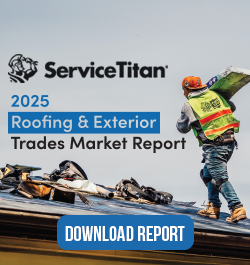

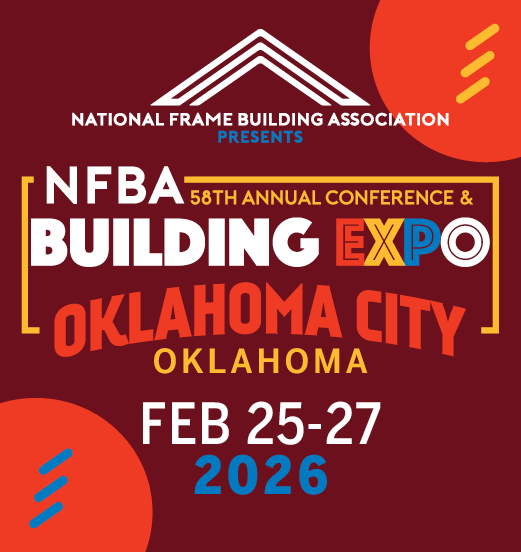

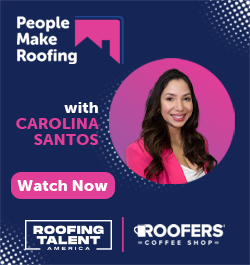



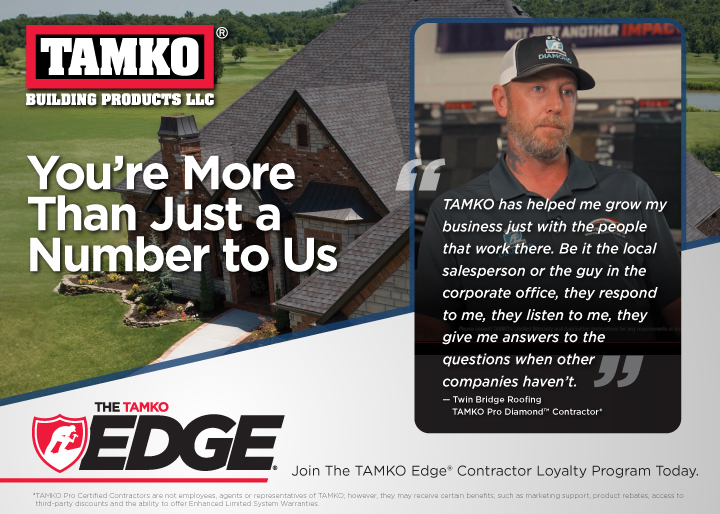

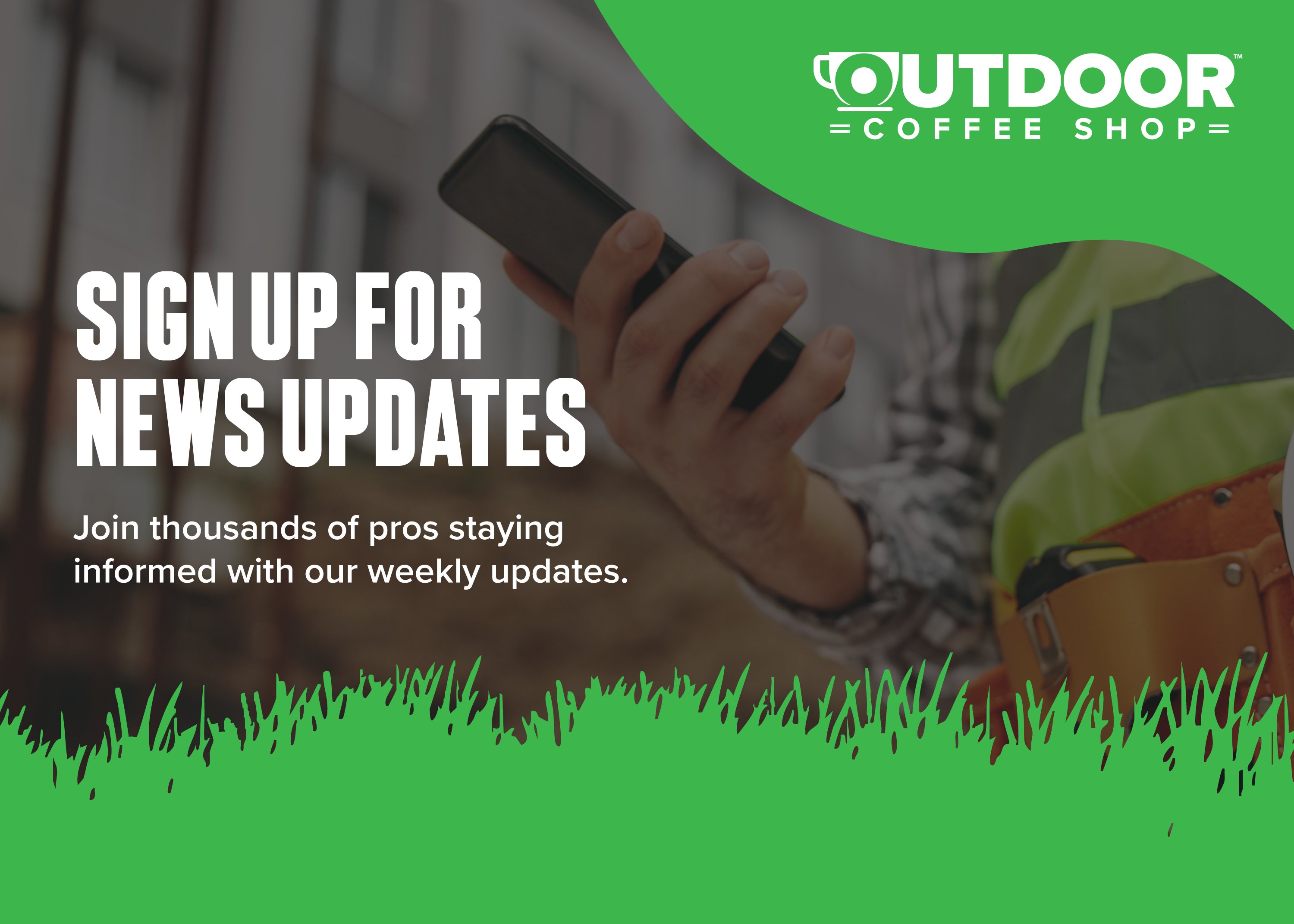

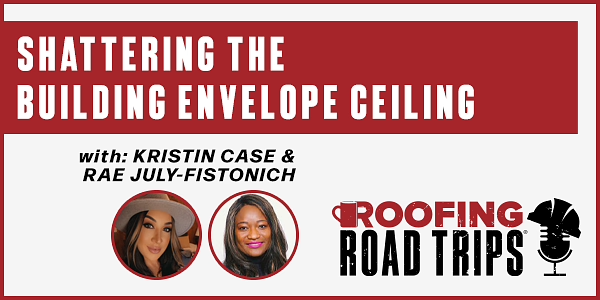
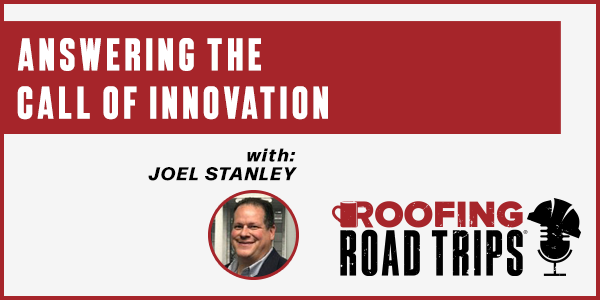
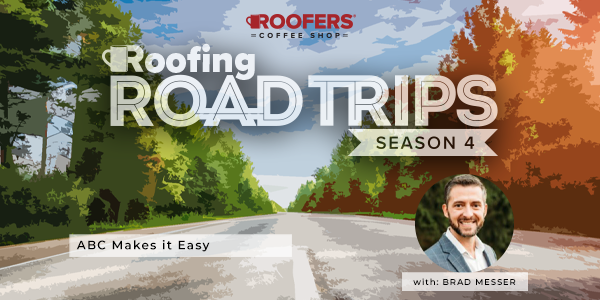
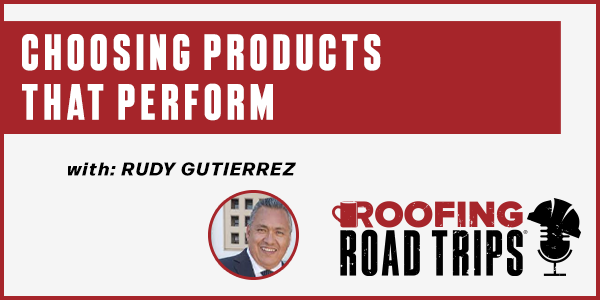



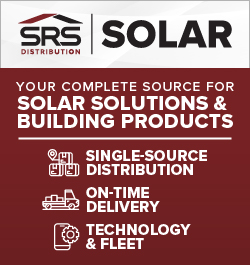
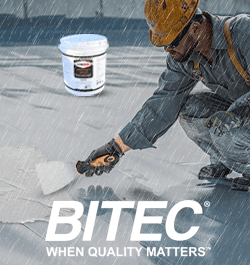
Comments
Leave a Reply
Have an account? Login to leave a comment!
Sign In